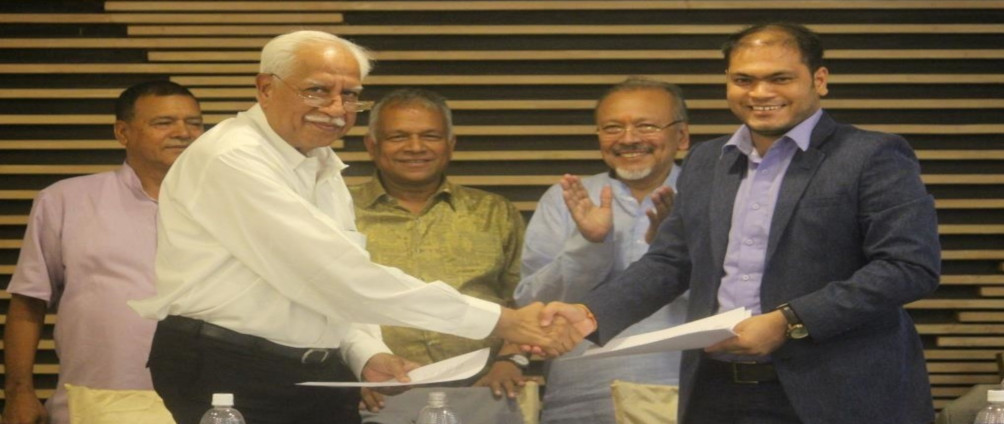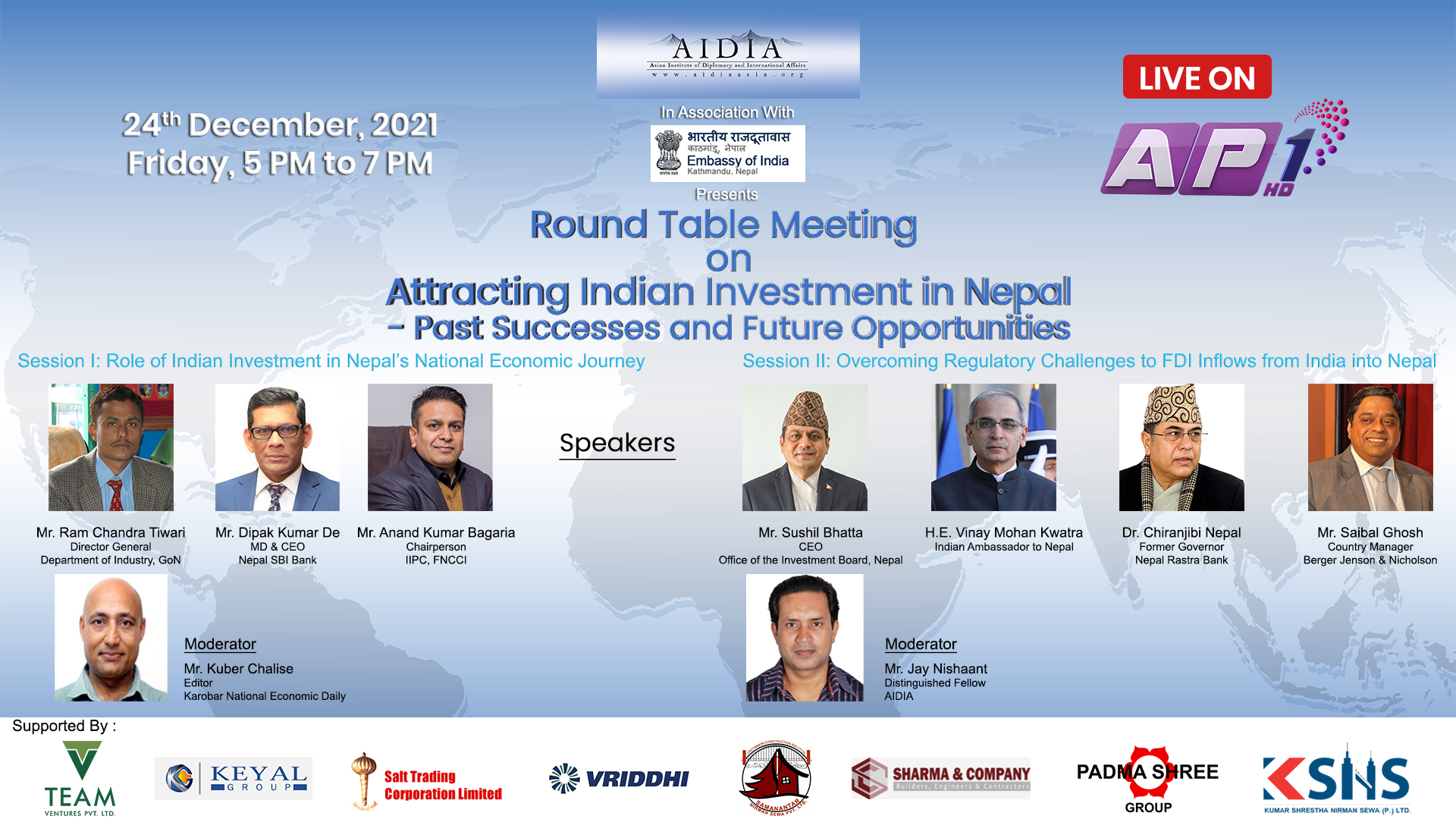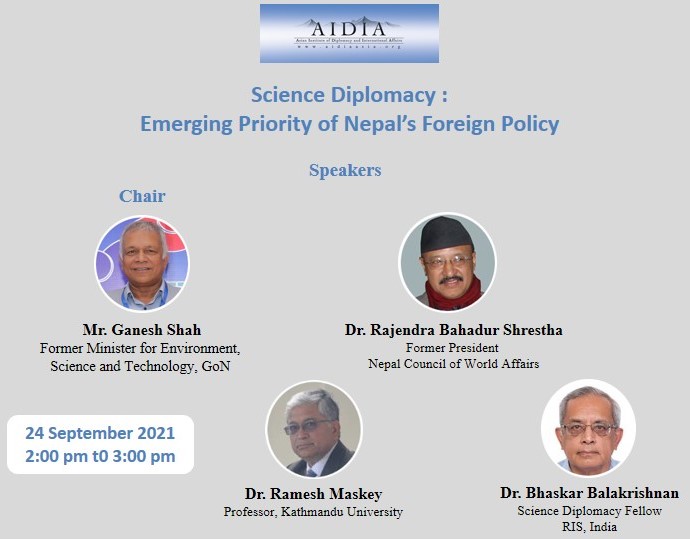Nepal needs Balanced and Sound Relation with Both Neighbors
Nepal must have a balanced and sound relationship with both of its immediate neighbours to enjoy maximum benefits from the progress and prosperity made by the emerging economic giants, participants of an interaction said Monday.
Addressing an interaction entitled, "Trilateral Cooperation Between Nepal-India-China: Prospects and Perplexities", the participants said with the rapid economic progress, two neighbours, China and India, were trying to expand their influence and reach in the region and beyond.
The programme, hosted by AIDIA, saw the key speaker from the India based think-tank, Centre for China Analysis and Strategy (CCAS), making a key note speech on the importance of trilateral cooperation among Nepal, India and China and the emerging new power equation in the South Asian and Indo-Pacific regions.
New aspirations in China and India are sure to give rise to new power equation and equilibrium in the regions. With India and China engaging in border dispute, time appears to be very fluid in South Asia, said said Jayadev Ranade, President of Centre for China Analysis and Strategy (CCAS), a New Delhi based think tank. "It would be, therefore, imperative for Nepal to maintain balanced relation without playing one neighbour against other," Ranade added.
Bishnu Hari Nepal, former ambassador to Japan, said that Nepal should attempt to take maximum benefit from China through its ever increasing trade, development in technology, transport and other sectors while the country should deepen its relationship with India by utilising its cultural and social relationship with the southern neighbour.
Nepal also suggested that China and India should focus more on economic cooperation rather than engaging in border dispute.
Another key speaker, former finance minister Madhukar Shumsher Rana, said that Nepal should act as an economic corridor for China and India. He opined that Nepal should engage in China's Belt and Road Intiative to reap maximum benefits from the connectivity it would offer to her. Since One Belt, One Road is one of the greatest development drives in the history of the world, Nepal must attempt to take benefit from it, he suggested.
Gyanedra Lal Pradhan, treasurer at FNCCI, and Chairman of Energy Promotion Committee, said that investment from China is easily accessible in Nepal which is why Nepal's involvement in OBOR had appeared lucrative. However, Nepal must seek to gain from its close relationship with India in the trade, technology and hydropower sector urging the southern neighbour to expedite infrastructure development.
Namrata Hasija, a research associate at CCAS, presented a paper on South Asia and BRI. The paper threw light on the Chinese investments under the BRI in Pakistan and Sri Lanka.
Speakers
- Kathmandu, Nepal





